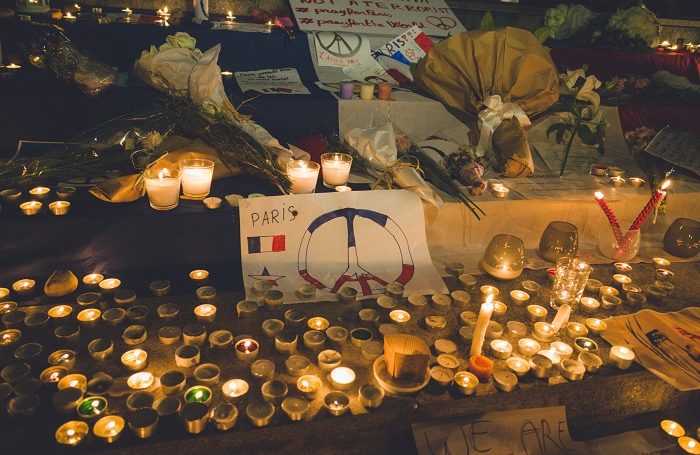
As the number of commentators discussing how to respond to the attacks in Paris on the 13th of November 2015 continues to grow, I want to start with two complications for evaluating counter-terrorism that remain too rarely mentioned. The first is that the evidence base for assessing the likely effectiveness of particular types of counter-terrorism strategy remains thin, at best: even in the academic field of terrorism research. Reasons for this are varied, but include: the diversity of historical, political, social and geographical contexts in which counter-terrorism is attempted, which render comparison difficult; the lack of counterfactuals – we will never know what might have happened if a particular assassination attempt, detention, or negotiation had not taken place; and, the difficulty of establishing causality, given that groups and campaigns we might choose to call ‘terrorist’ are frequently short-lived. So incomplete is this evidence base, indeed, that one analysis of over 20,000 studies of terrorism found a total of only seven that ‘contained moderately rigorous evaluations of counter-terrorism programmes’.
A second complication is that the aims or purposes of counter-terrorism are not always self-evident, and may be multiple, even contradictory. These purposes might include the symbolic – for instance, demonstrating a government’s resolve to address a threat; deterrence – to discourage future attackers; or reactive – to respond to a particular event. The mechanisms of counter-terrorism are, as this suggests, considerable and varied, with one overview identifying thirteen different models and five different approaches to countering terrorism.
Taken together, these two points present an appeal for more clarity on what ‘we’ hope to achieve in responding to the Paris attacks. And – at the same time – a little more circumspection about the prospective consequences of retaliatory measures, especially those likely to result in further bloodshed. Clarity and caution might, I suspect, be appropriate aspirations for all would-be policy analysts. They are especially so, however, in an area so penetrated by known (and unknown) unknowns as terrorism research, to paraphrase Donald Rumsfeld. In Marc Sageman’s provocative summary: ‘we have a system of terrorism research in which intelligence analysts know everything but understand nothing, while academics understand everything but know nothing’.
With this in mind – and drawing on useful analyses including by Richard English, Ronald Crelinsten as well as our own work in this area – here are three suggestions for responding to the Paris attacks.
First, to entirely abandon the moralistic, militarised and Manichean discourse that has saturated the framing of the attacks by too many media commentators, academics and politicians. Such framing may have populist utility for would-be or incumbent statespeople. It adds nothing, however, to our understanding of what happened (and why), depoliticising the ambitions of those willing to take their own lives and those of others, and constraining the apparent desirability and legitimacy of particular responses. Nothing is gained by thinking about the Islamic State as ‘an evil threat’, or as ‘barbarians’. Such a simplistic, Orientalist caricature simply risks inciting more violence upon individuals and communities deemed connected to ISIS by virtue of apparent ethnic, religious or national identities. The recent hardening of attitudes toward Syrian refugees in the UK and beyond is no doubt, in part, a product of the contemporary association of terrorism with cowardice, duplicity, Islam and the Middle East.
The second suggestion is to treat the Paris attacks as a criminal rather than military attack, and to prioritise responses grounded in criminal justice, intelligence and diplomatic frameworks rather than those reliant upon the armed forces. Subsequent strikes by France, Russia, the US and the UK on ISIS targets in Syria and Iraq are likely to have done little to weaken any appetite for future attacks. Their strategic utility likewise, is – at least – highly questionable given the relatively poor record of militaristic approaches of counter-terrorism. And, the risk of ‘collateral damage’ – or civilian death and injury – should be front and centre of any risk analysis of whether such responses merit their consequences. One report published last year suggested that US efforts to kill 41 men via drone strikes had led to the deaths of 1147 people. Iraq Body Count estimates the current death toll from violence in Iraq at between 146,835 and 166,813 civilians from the 2003 military interventions. Despite the rhetoric of Presidents Hollande, Obama and others, the costs of another ‘war on terror’ – estimated at $5 trillion by one reckoning last time – will again be more than financial.
The third suggestion is to refuse the temptation to overreact in response to the events, irrespective of the pain they have clearly caused. Thinking more carefully about the contexts of the attacks would be a useful start here: contexts which include Western foreign policy in the pre- and post-9/11 periods, as well as individuals who feel themselves alienated or excluded from established socio-political settlements. Similarly, downplaying rather than exaggerating the threat posed by terrorism to those of us living in France, the UK and elsewhere would be helpful. This might involve situating those attacks in relation to other historical and contemporary violences in order to de-exceptionalise these events and their consequences. So, on the one hand, few states in Western Europe are strangers to unconventional violence of one form or another: there is, regrettably nothing qualitatively new here. At the same time, the risk of personal injury from terrorism – again, in Western Europe – pales into insignificance vis-à-vis almost any other type of direct or structural harm one might mention. This does not, of course, condone or make light of that which happened in Paris. It does, however, appeal to a normalisation of response in a time of air strikes, ‘states of emergency’, ‘lock-downs’, and inter-communal fear.